Transcript
Socrates himself did not leave us any of his writings. We mainly know about him thanks to Plato, who wrote down many of his dialogues after Socrates’ death.
THE LIFE OF PLATO ± 427 BC - ±347 BC
Plato was born around 427 BC, near Athens, to a renowned family. His real name ws Aristocles, but he was called Plato, which means ‘wide’. (Because he had broad shoulders? Or a big mouth?)
He started out as a poet, but soon became a follower of Socrates, together with his two brothers. Socrates’ trial and death left a deep impression on him.
He traveled for twelve years, visiting Italy, Sicily, Egypt and Cyrene. He returned to Athens in 387 BC and founded the Academy, a school which existed for almost a thousand years, until 529 AD. It was called the Academy after the landowner, Academus. It taught physics, math, astronomy and of course philosophy.
In 367 BC Plato was asked to teach Dionysius II of Syracuse, heir to the throne. Plato had high hopes of educating him into the philosopher-king he saw as ideal. But he did not succeed.
In 360 BC Plato returned to Athens for good. he continued to write and teach until his death around 347 BC, when he was around eighty years old. His nephew Speusippus succeeded him as leader of the Academy.
PLATO’S PHILOSOPHY
At the base of the knowable world lies the world of Imperishable Ideas: what we know is a world of transcience, in which things are different from each other, contained in bodies - but beneath that there’s a world of souls and ideas (true forms) in which things are intransient and everything is united.
Plato: “The most important goal in life for an intelligent human is to see through the surface, so we can behold actual reality. Those who have attained this enlightenment have a duty to pass on this wisdom, for the good of mankind and the state.”
Questions for further discussion
Plato thought the most ideal government would be by a philosopher king, a ruler who combines political skill with philosophical knowledge. Do you agree? What skills does a ruler need, according to you?
Plato’s concept of ‘ideas’ is not the same as ‘ideas’ in our everyday talk: his Ideas are what he calls ‘True Forms’: “the non-physical, timeless, absolute, and unchangeable essences of all things, which objects and matter in the physical world merely imitate, resemble, or participate in.” Can you describe what you think what would be the Idea of: a cat, a car, a tree, a human?
Advanced assignment: research the similarities between Plato’s philosophy and Buddhist teachings, and how these might have informed each other.
Original pages
Next episode:





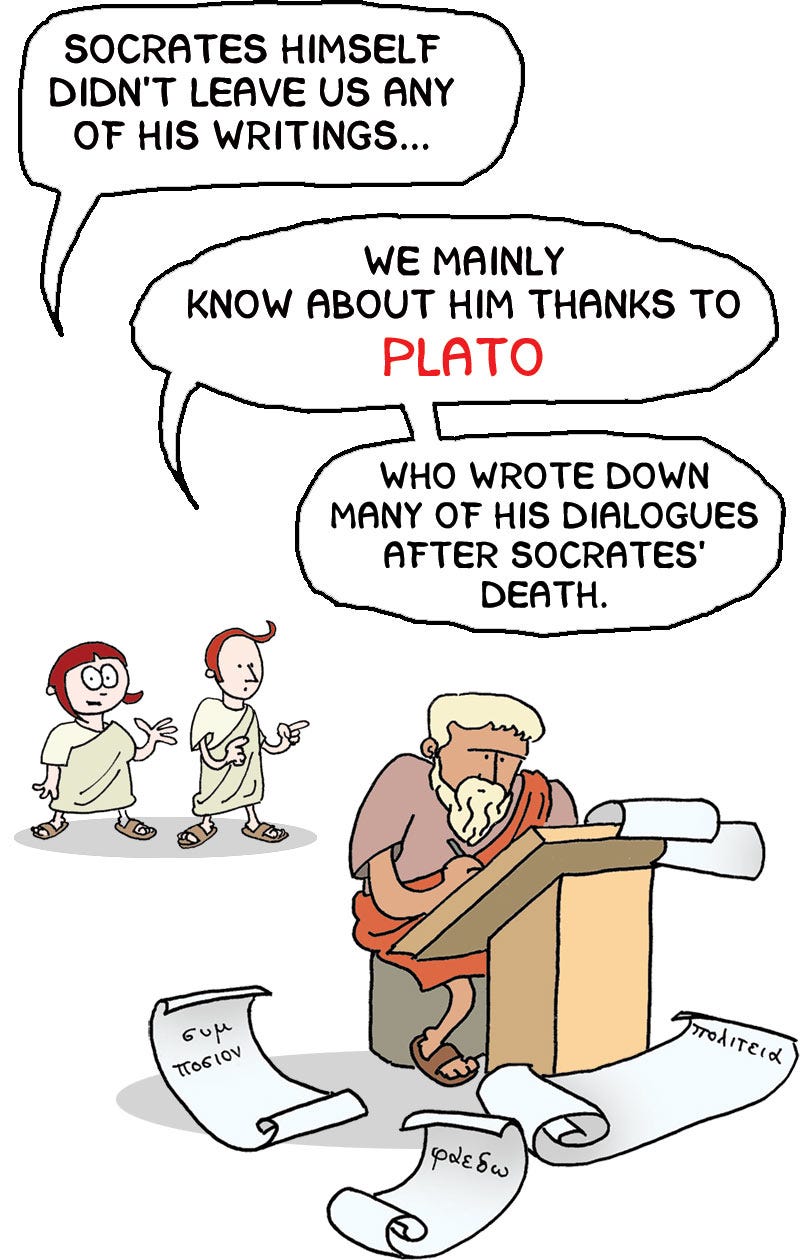
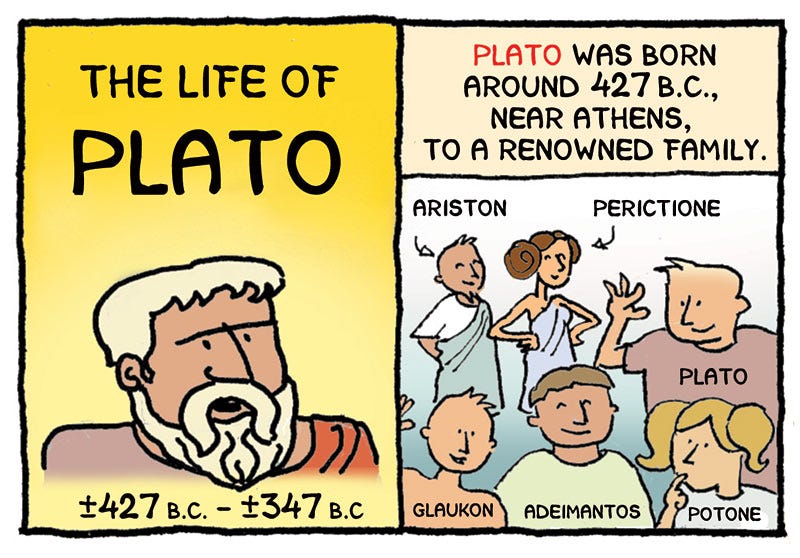
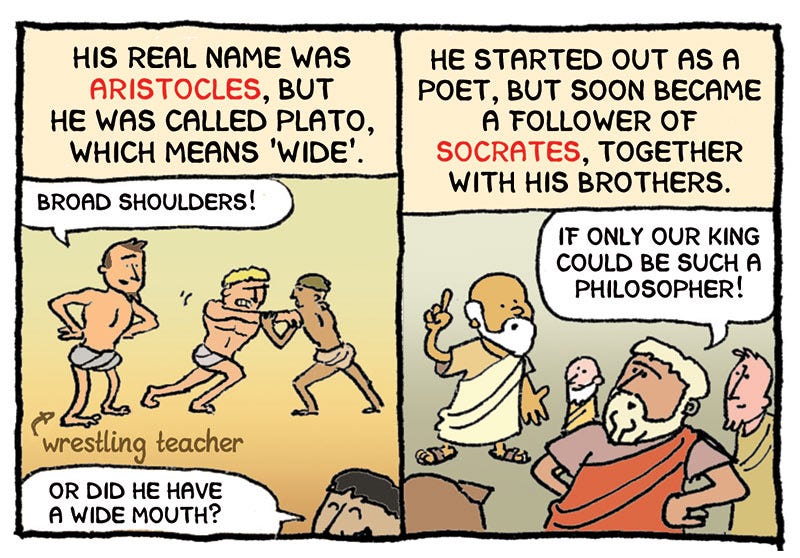
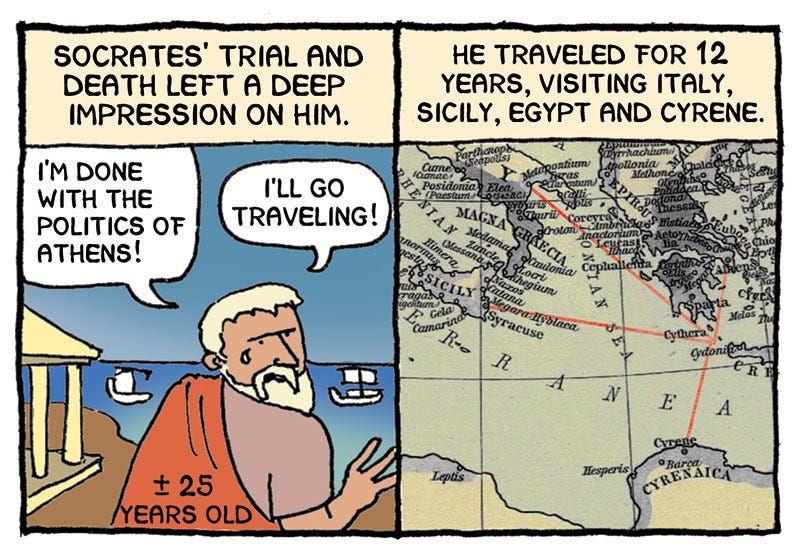
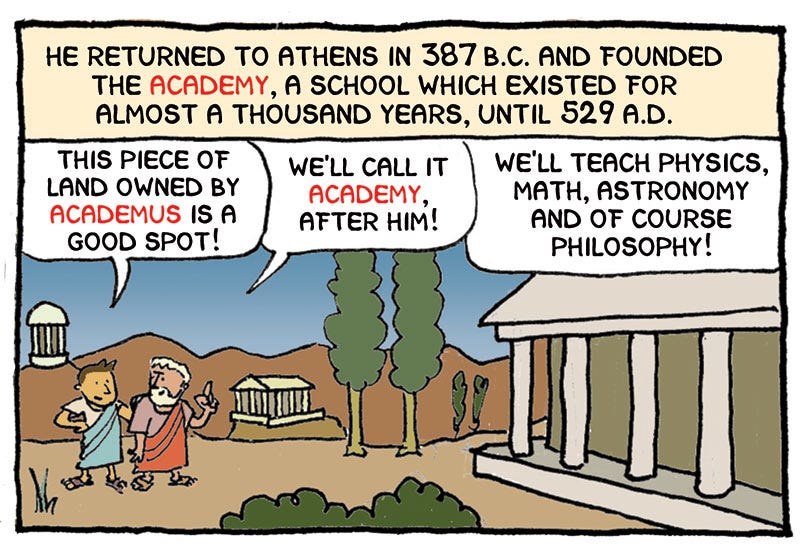
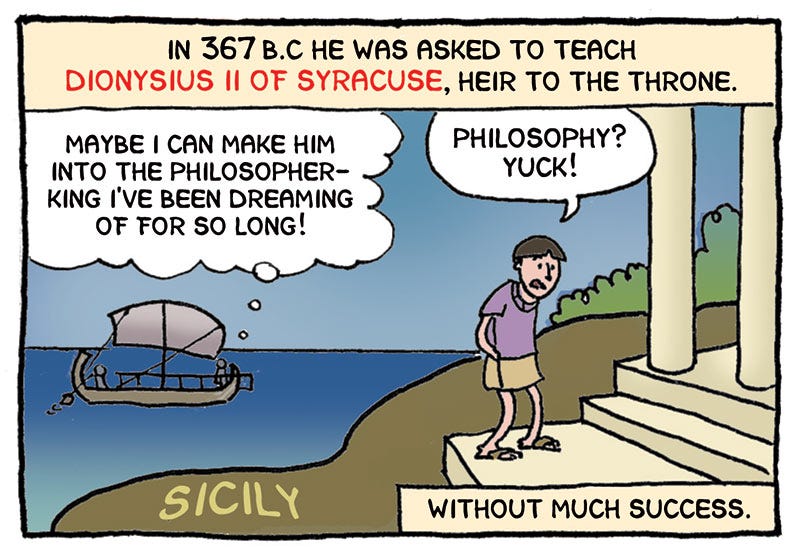
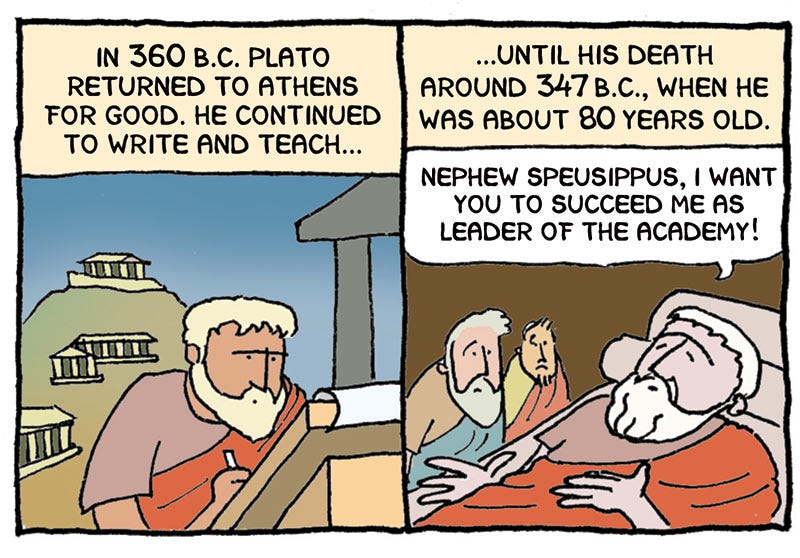
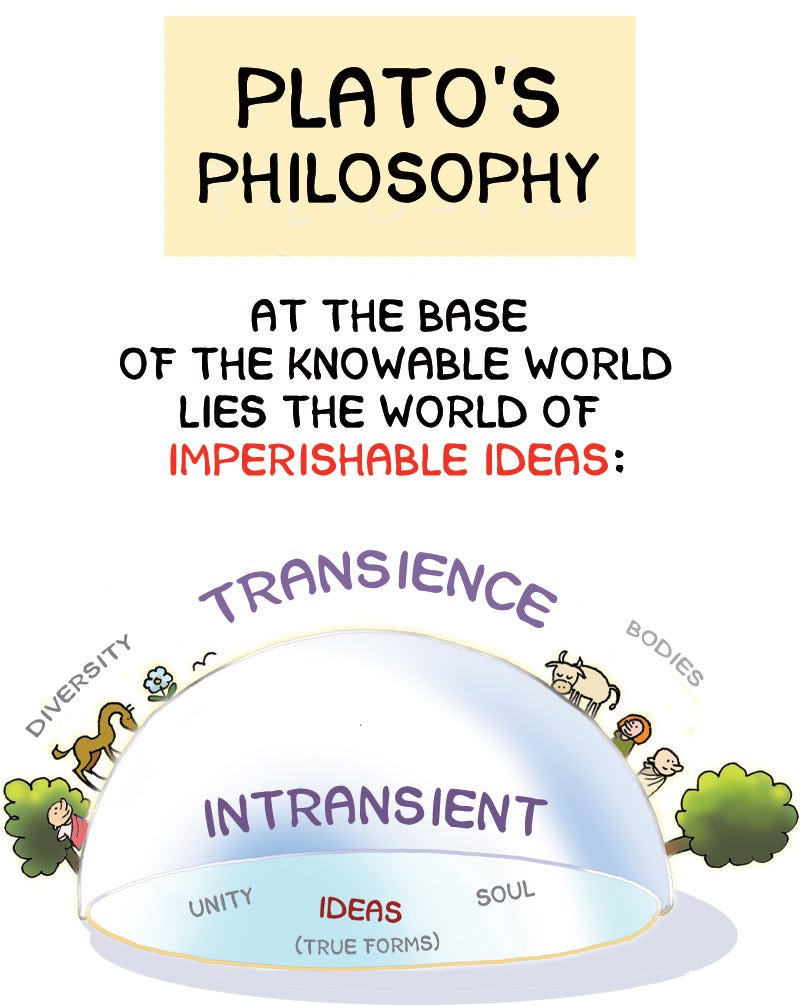


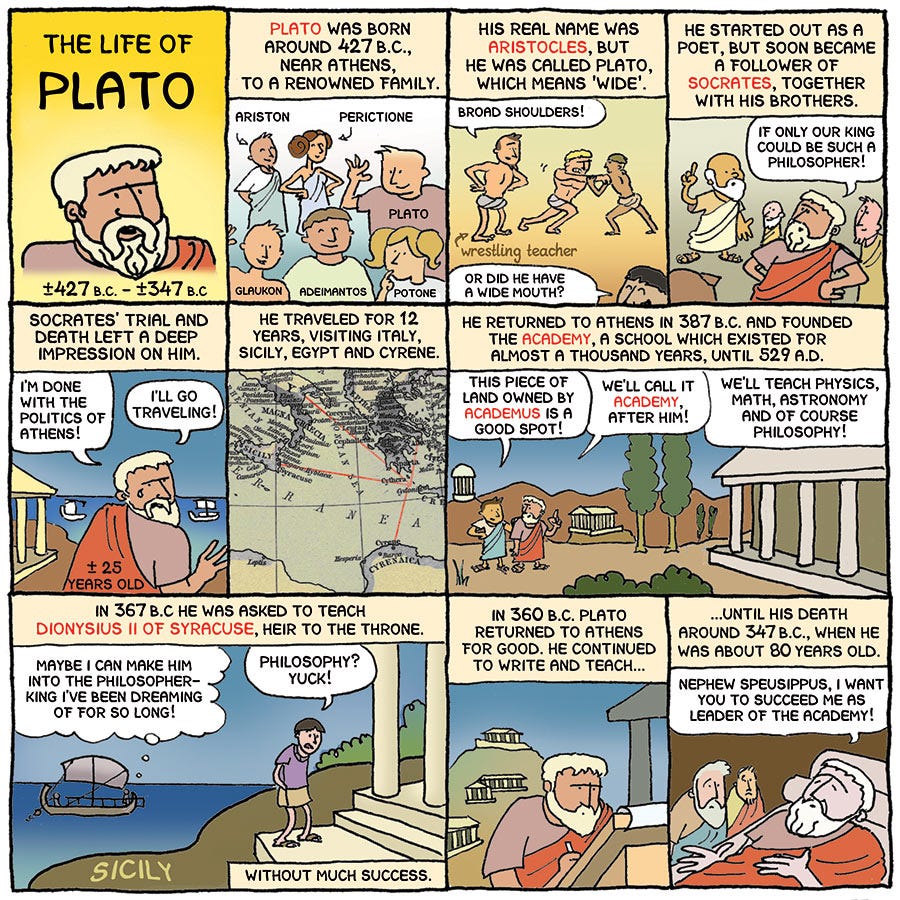
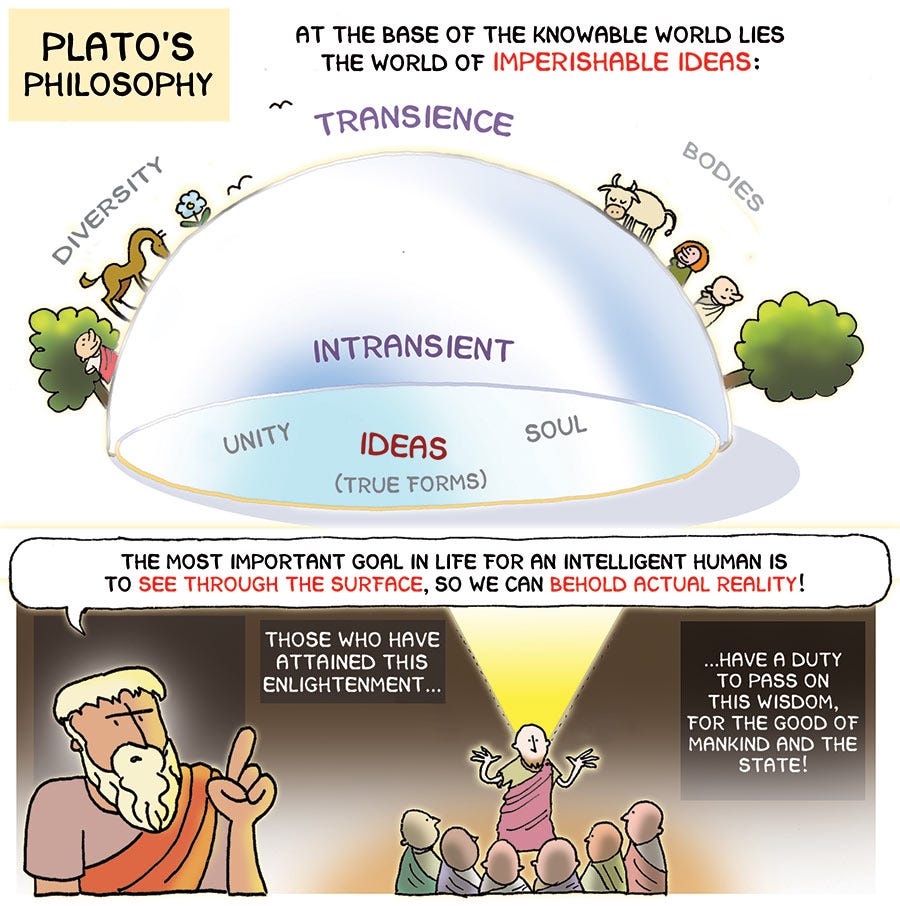
Loveeeee it